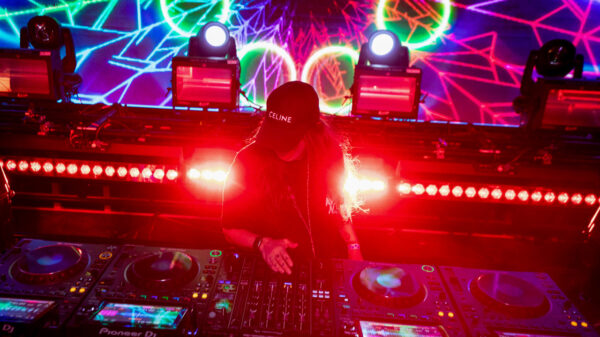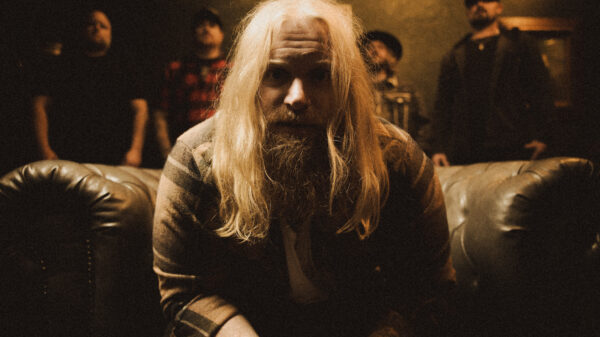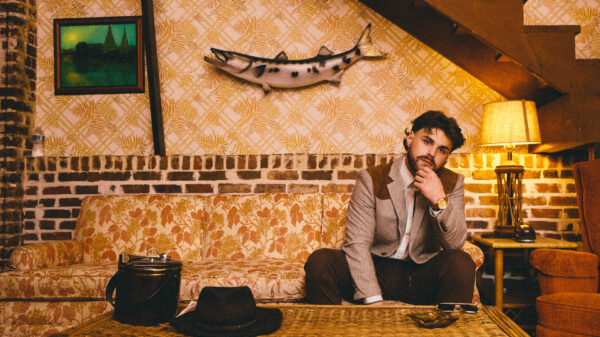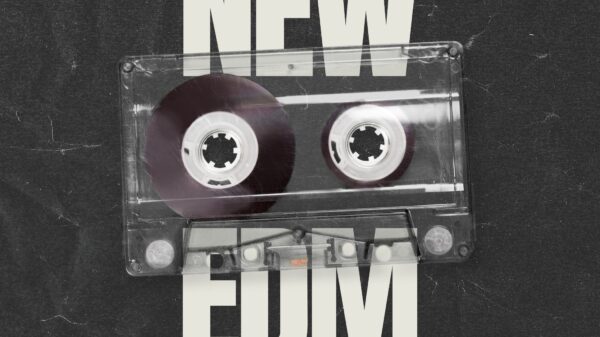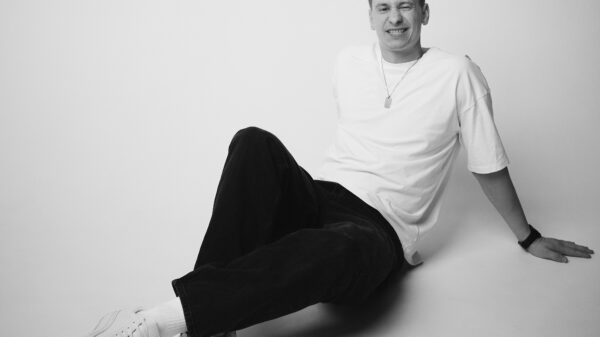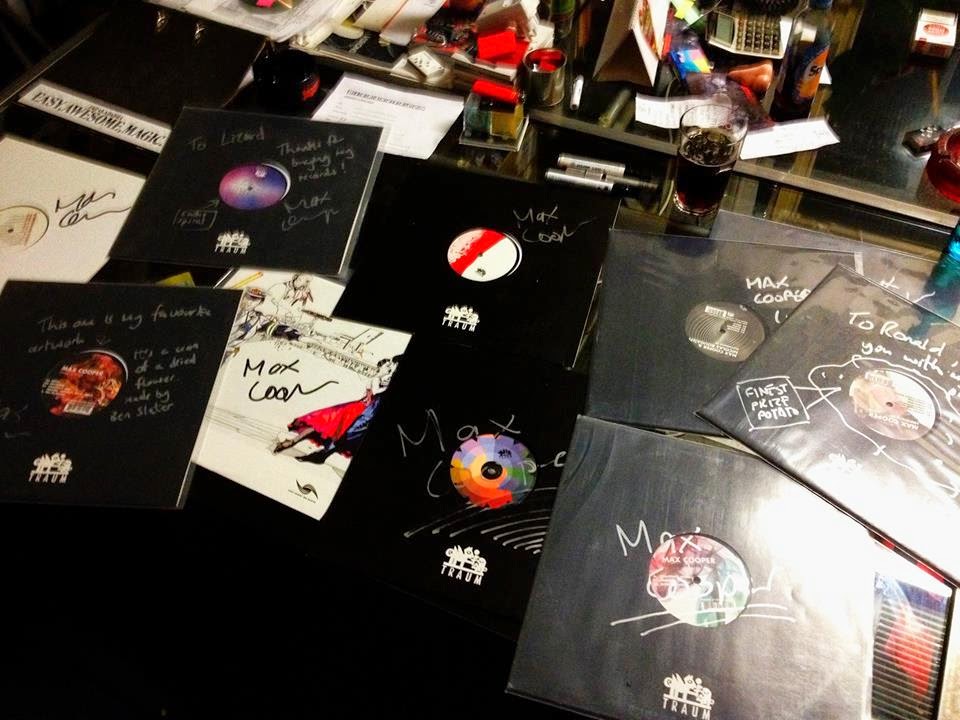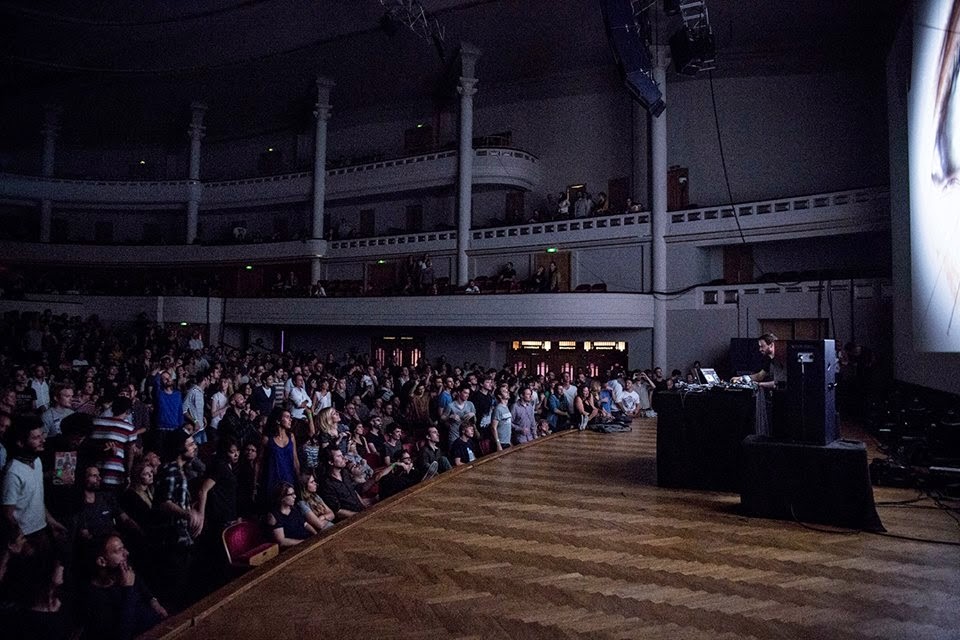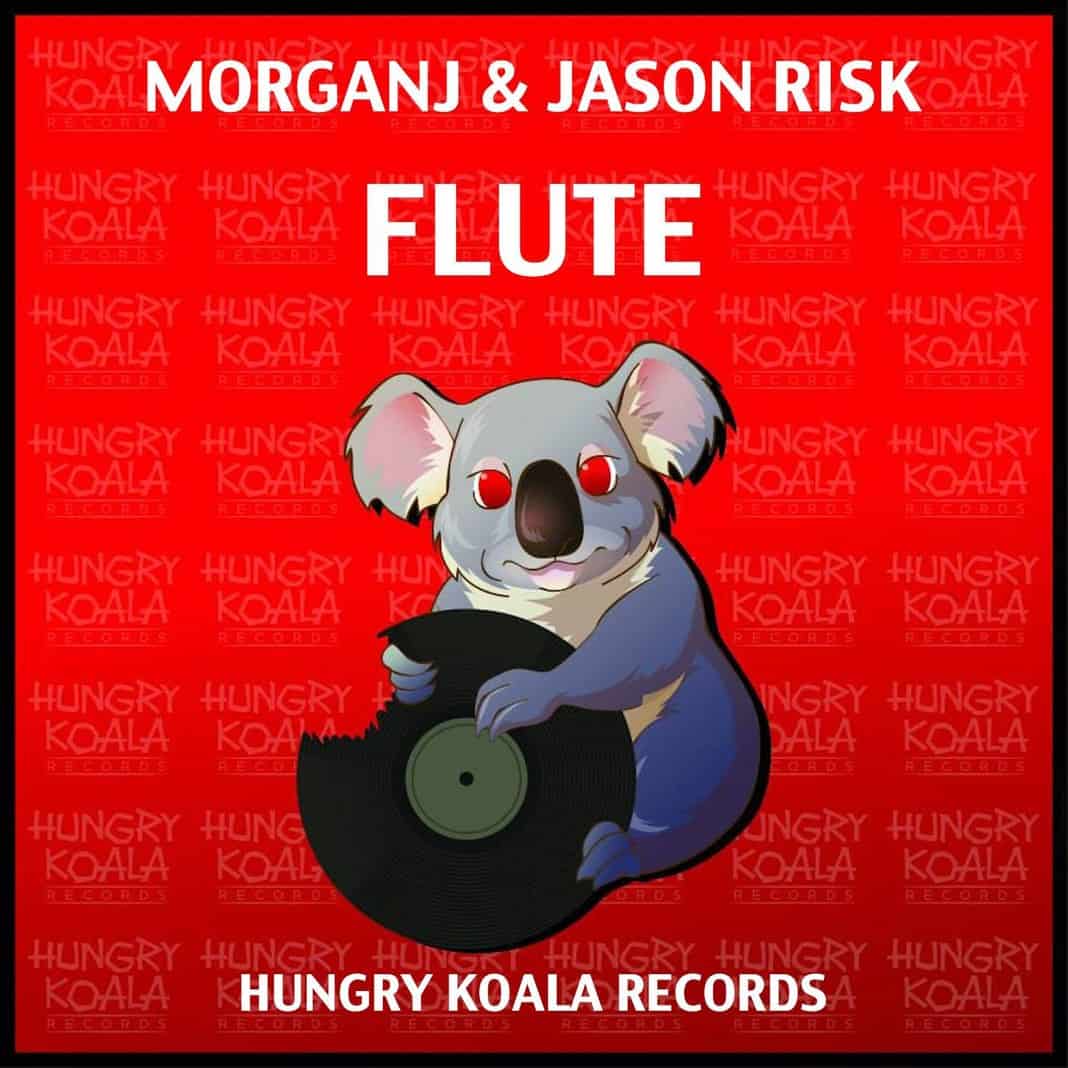Max Cooper and Riley Reinhold Interview
RR: Hi.
RR: Hey Max.
MC: Hello!
MC: So we're going to do a strange sort of interview, more of a conversation.
RR: Yes… indeed.
MC: I remember hearing some music on Traum and thinking it was amazing before I knew anything about the label at all.
RR: It was an instant embracing? So could you start from the beginning?
MC: It was a time when I was a bit lost between my science career and my music, not quite sure about what I was going to do with my life. I made some new tracks, and I thought, why not try sending them to this “Traum” label! And then, two days later I had a phone call from a strange German man called Riley! Haha.
MC: Yes, at that time I was experimenting with lots of different styles. I made some really terrible music. I was trying to find something that seemed to work for me personally, and that other people would like too.
RR: That´s the reason you thought including the first EP on the compilation was not perfect I guess!
MC: I think my first Traum releases were the beginning of me finding my feet musically, but there was still a way to go for me. And there still is a long way to go I feel. But yes, my first release was still immature I think, I needed more time to develop and think about my whole process, which was something you said to me straight away. You told me to bring concepts into my music and to tell more of a story.
RR: Yes, I thought to challenge you might reveal different qualities. Connecting your science work to music then gave us the way of developing a loose concept…so that was the starting point!
MC: Yes, and it was a technique that I went on to explore a lot, and something that is still central to how I go about my music process. It started with loose ideas tied to pieces of music. But developed more into concepts driving the production process. But there was also a lot of misunderstanding.
RR: I remember on Beatportal-Forum how the people talked about your math approach. When was that again ? Do you remember?
MC: Haha yes, it made me take on a specific approach with what information I put out into the public realm – it's fine to say something unusual and crazy sounding, but if you do, you need to be very careful that everything is correct and precise, because things very quickly get taken out of context. I think I've annoyed PR people with my obsession to try and get everything precise and correct since then. I think that was around 2008.
MC: So you encouraged me to use concepts, and to think about music in a more wide way, taking in any information that isn't traditionally associated with music, and tying it to musical expression somehow. It's a very useful way to work, with endless possibilities when you start to find all the different ways other information can be translated into musical form. It was also tied to my obsession with music videos, which also began with our first release.
RR: Yes, an identity on the visual side is also essential for us at Traum. We think it places us where we belong. The music you then released with us was a flow of ideas , I quite like that. I see artists controlling their work more and more in the course of their career and that comes natural… since you intend to form a distinguished handwriting – to give a shape/definition remote from music … but I still like the instinctive intuitive early works with artists!
MC: You certainly work differently from most other labels – for a start that you even listened to my random demo arriving in the post. I think most labels don't listen to most demos.
RR: Well a demo is always random in a way I think, a lot is coming from the stomach… but it is way of working for us at Traum, that we do not search for an established artists right away but want to develop with the artist. This attracts also other artists. An artist like Robert Clouth sure recorded for us because you were on our label.
MC: So I was very surprised you heard mine and then called me. It's a good thing, and you've brought through so many new artists as a result.
MC: I want to ask you about how it was running the label back then in 2008. In comparison to now – how have you seen things change? Or since even earlier, since you started Traum?
RR: I basically try to stay exactly the same in my way to discover quality music. It it is harder not to change then to change. Change is not always positive in this respect. But for sure fine adjustments must be made. Nowadays I really have to explain people that two tracks are not a demo for us. That 4-5 or 6 tracks are pretty good to work with and to select a good EP out of the best tracks or even encourage the artist to emphasize a particular quality on the EP by adding another track. With you and Dominik Eulberg, Extrawelt… and all other artist on our label Traum it was never a question. I think that changed.
RR: We accept demos because it is our way to support people who are not in a network but work on their own… who are not friends with big DJ´s that support them… so it is very much the music we are keen on… I think there is a lot of hurdles in life we don`t want to make it to complex. We also help in the process of enhancing the recording.
MC: Yeah you used to drive me mad with changes! Haha. But in the end they always made the tracks better, so I learnt from it.
RR: Well it is a process… they are never easy these corrections… more of a pain but then the outcome is all worth it… yes! I also believe in cultural differences. Each label should work differently… so they protect the electronic scene in the long term. You know what I mean?
MC: Yeah if everyone works the same way and releases the same sort of music that will sell the most then the whole scene becomes totally dull. Just as in any natural biological system, variation is the key to longevity. As long as there's enough variation out there people can always find something new to get excited about and techno doesn't melt away like so many other genres have done. Although most of my favorite tracks I did with you on Traum weren't the techno tracks.
RR: Well… also we are now more open for new expressions within the electronic ways and that is also due to the artists that record with us. On our new TOUR DE TRAUM IX released in December, we release more “non-techno“ tracks then we have ever released for years. I think the thinking of electronica was also going into the idea of writing the track “i“. We asked you for something non DJ!
MC: I would make one A side, then also a B side track DJ´s could play, and you would say…”for the last track just do something weird“. Yep, that was the first one! You asked me just to do something weird, whatever I wanted, and that was probably the first decent track I'd ever done.
RR: Yes, I remember I said, “Have the courage to leave the DJ path”.
MC: Then we had the classical experiment with “the end of reason”, and the broken beats experiment with “Automnemonic“
RR: Yes to cross the border was expending our horizon as well.
MC: Those also were probably the most important tracks for me moving forward creatively, in terms of what I'm most interested in now.
RR: I remember “i“ was the first track Dominik Eulberg said was great and he played in his sets. I tried it myself and there was so much sub bass I almost killed the PA.
MC: haha….yeah – “i”
RR: Not a good PA though I must admit!
MC: It's got way too much lows for most club systems. It sounds nice on a Funktion1 or Void system though, really warm and enveloping.
RR: The PA´s have to grow with the developing of the musk, in many ways they do, but not always.
MC: But on a crappy system it's dancefloor clearing time!
RR: I remember you like the sound in the Grelle Forelle in Vienna!
MC: Yeah it's great sound there.
MC: I learnt quite quickly that a lot of my music only really worked on certain systems. It's still the same now.
RR: It was the first time I heard your music in the same quality as it was recorded it was also frightening!
MC: I write my music as much for home listening as for clubs, and sometimes I want to explore ideas that really don't lend themselves well to some club set ups.
RR: Totally understandable, becoming a slave to a sound system is no good.
RR: I do like a slightly “dirty“ or rather charismatic interpretation I believe…in music, so there is less predictability. I know you do not, haha!
MC: Yeah sometimes the dirty interpretation is what is needed.
MC: That's part of the reason I decided to do mainly Live/DJ hybrid sets. Because some club systems just aren't suited to all live stuff for me where I've got so many layers and detail which can get lost. Or you could say I just don't know how to make proper club music. But that's fine, I'd rather make what I want to make, and not be restricted by the limits of what sounds good in most club set ups.
RR: Well, vinyl guys are so much different from the new creative digital kids…they make everything smooth and big sounding…that is not always possible with complex arrangements.
MC: As long as we had the A side and B side that will work, the last track can be a clanger! What about the time we printed two tracks on top of each other on a vinyl? You probably don't want to bring it up! Haha.
RR: I forget about this one… rather painful, don´t remind me.
MC: But hopefully we can see the funny side now – My friends all asked me for copies of it.
RR: Its good you take it easy, it happened only once with TRAUM.
MC: That's the difference between digital and physical… once it's out there there's no changing it… maybe we’re missing some great mistakes these days.
RR: Well sure, once things leave you, you don`t have any influence on them anymore…only in your head. Like a hard disc constantly spinning…hopefully not for too long though…new things come and bring along new inspiration.
RR: What was you favorite track with us? Force yourself to pick one!
MC: Hmmm, probably “Automnemonic“. Because it sounded different to most other things, it didn't (and doesn't) really fit into a normal genre, but it still really works in a club, or at home – which is a combination of factors that I'm often (unsuccessfully) aiming for. It was also made using some new techniques for me – mainly me making really weird noises into a Microphone and messing with plastic bags, to make the main vocal style robotic hits and the details.
RR: Yes, it is also one of my favorites, it always works when I play it in a club… sounds pragmatic I know.
MC: I think it's important to try new production techniques with each track so you can keep learning, I don't do it enough. It's funny too, I remember we used to argue about kick drums. You used to tell me my kicks needed to be louder. And I thought they needed to be quieter. Now when I play the old tracks, the ones that I used to think the kicks were too loud in, now sound the best to me.
RR: Well, that is still a thing I am obsessed with… haha!
MC: Because I think in recent years people have become accustomed to louder kicks. So you were ahead of the game back then! Loads of people were doing these quiet kicks!
RR: Well we sure knew the weakness came with the people who had not yet build up a studio and could not evaluate the physical side.
MC: But all that said, the most interesting thing for me is the understanding that there isn't really a “correct” way of mixing a track, within certain constraints of course – there is flexibility, and a lot of it comes down to trends and personal preferences which can change with time. It depends on what technology people are using in clubs too. Sound systems, what they're playing the music with, etc (vinyl obviously placing certain restrictions on how things need to be mixed). Although the best music tends to still sound great even when it was made 20 years ago! So the subjectivity thing only goes so far. It's quite a minefield making music – like some sort of battle with yourself where you're always questioning everything and second guessing yourself.
RR: I think there needs to be a balance in a mix, because if there is none it´s not really enjoyable…I am not talking about white cube music…that is a different story with labels like Raster Not on Music or Sabotage Records…they are striving for something else.
MC: Yes, balance is required. But within that realm of acceptable balance, there is still flexibility. Kicks can still range in level and the track can sound fine, it just depends how much emphasis you want on the kick relative to the other elements.
MC: I used to prefer my quieter kick tracks and think they sounded better when I played them. Now I prefer the louder kick tracks. Maybe because of the whole DE techno thing, which has taken over…The Berghain influence! I'm sure it's pushed up the level of kicks around the world! Haha.
RR: For sure there is no 100% recipe with kicks.
MC: It must be funny for people who aren't interested in techno – so confusing how so many people can be so obsessed with the minutiae of (evenly spaced) kick drums.
RR: I agree you need to stay away from too much technical details, they can draw you away from the main intention of a track, but some sounds are only sound good because of a technical quality.
RR: I say some of the best kick drums come from Robert Babicz and Radio Slave.
MC: (Yes Radio Slave certainly has some of the best kick drums!… and Robert's stuff always sounds huge on every system I've heard it).
RR: Ok no more kick drums!
RR: Ok, I was working for Kompakt before they were called Kompakt, there was a time when they were called Delirium which was a record shop chain in Germany, most notable one in Frankfurt, but also the one in Cologne then run by the Kompakt people. Mike Inc., The Modernist, Jürgen Paape etc.
MC: And that was a record shop + a Record Label?
RR: It was only a shop then in Cologne…the label Delirium came from the Frankfurt side and was not connected to the Cologne side…I remember in my first days I worked for them, I ordered 10 of the first Basic Channel release with a Jeff Mills on the flip side in dark red vinyl – my favorite vinyl color of all times, like dried tomato ketchup – but the copies would not sell, and then Sven Väth had the record in his charts and all sold in two days.
RR: It was my first success as a “tastemaker” and also the first contact with the commercial side of music because they did not sell at once and everyone in the shop looked down on me. Well, I had enough courage and it confirmed that I had a good sense with music.
RR: When Kompakt shop opened I wrote a track with Emanuel Geller called “Messbecher“, which was 15 minutes long and had to be cut to be featured on the First KOMPAKT CD ever…Kompakt CD 001. The story behind it was that I was playing the track from tape in a club before it was released, it was the “Liquid Sky“ club in Cologne and Holger Czukay from CAN came up to me when I had played the track and said that was a cool track… so my confidence grew… I had understood something along the way. That was about 1995… I would have to check. Working in the shop meant choosing records for people… my interest was to push something new and exciting… and this was also my intention when we founded the label TRAUM with my wife Jacqueline. I think there is a lot of chances one has to take to get to the point where one is happy.
RR: What is an exceptional moment you had encountered when you played one of your tracks? Did anyone help you on your way apart from us as the label?
MC: Yes, lots of people have helped me along the way with supporting my music and playing it. It's impossible to list everyone, but certainly in the early days Minilogue, Dominik and the Extrawelt guys were great in letting me remix their work (even if it did require a nudge from you!), and Sasha was very supportive then too, again getting me involved in terms of remix work as well as gigs. Perc has always been great too, even though our music is very different, we've had a few productive remix combinations – he did a mad remix for me recently, which just sounds insanely huge on a club system, and also makes people think the world is coming to an end – he's definitely been an influence for me.
MC: No, just a difficult question!
MC: I'm sure there are loads more people I should mention, my manager Grant Heinrich of course, who has been working tirelessly with me for years. And so many more.
RR: I come back to the point where you say, it was a bit strange that we the label TRAUM directly agreed on your first track.
RR: I just saw the Kraftwerk Documentary on ARTE TV, and there were a lot of German pioneers of electronic music on there… and they said, what I always say, that the German scene was never as good as the British scene in the seventies but there was genuine and intuitive approach with bands like Can and the German scene at that time. Noting that Can was one of the more successfully German Bands on international territory. To improvise and to be flexible also in terms of label work is something we cherish and looking for the kick is another thing which drives us.
RR: When you came along we had a kind of guess what could emerge from it. German pop music is still bad in Germany with few exceptions… but go for the monotone hypnotic factor in techno music – like Ricardo Villalobos etc… the Can roots are in a lot of us… hope that makes sense and I don`t get crucified for saying this.
MC: You mean people in Germany love precise form (like in electronic music)?
RR: Rather striving for something spiritual but abstract.
MC: You mean people had a lot of their art and projects destroyed because of the political situation last century, or do you think that the environment there hasn't encouraged art in more recent years?
RR: The environment has encouraged art in more recent years but, yes… I think in the German DNA there is still a kind of “inner feedback button“ which has to be switched on and that has an influence on the music… although we see really relaxed music coming from a new generation of German producers especially from Hamburg.
MC: That's an interesting idea, if that’s what you were getting at.
MC: On that note, I think it's a good point to finish.
RR: Okay, one last word from you?
MC: Thanks for chatting to me Riley, it's been nice to do some reminiscing and looking back at our releases together, along with a whole load of other random tangents!
Past Interview with Max Cooper on MelodicTronic FM Radio
Max Cooper on MelodicTronic FM Radio (Bonus Interview) by Melodictronic on Mixcloud



